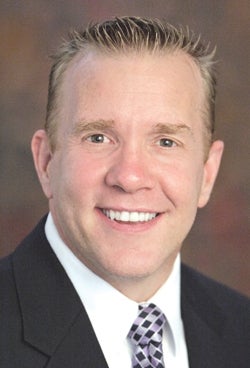If you want to be successful in business, then you need to develop your ability to network. Below are eight simple tools anyone can use in order to develop the necessary skills and become a more effective networker.
1. Make a great first impression: Every time you meet someone new, think, “SHE is the key.” S.H.E. stands for Smile/Handshake/Eye Contact. By greeting people with a genuine smile, a firm and friendly handshake, and direct eye contact, you set a positive tone and make the best first impression possible. And first impressions are what people remember.
2. Be a name-learning machine: Knowing someone’s name demonstrates that you value the person and that you have differentiated him or her from the crowd. It says, “I remember you; you made a good impression on me.”
One way to remember names more easily is to repeat the name after you are introduced, followed by, “It’s nice to meet you,” or a similar appropriate statement.
3. Ask open-ended questions: The following are questions that will get people to open up, tell you about themselves and, professionally speaking, fall in love with you.
• Tell me about your job.
• What are your most important responsibilities?
• What do you like most about what you do?
• Where are you from originally?
• Do you have children?
• What are you passionate about?
• What do you like to do in your free time?
Asking people questions about themselves and showing a genuine interest in their answers is the best way to show appreciation, and it’s a potent networking tool. Offer information about yourself as well so that others who may not know how to be effective networkers can still learn about you and become potential clients or references.
4. Master the art of listening: Great leaders have mastered the art of being great listeners. But for most of us, the daily distractions of cell phones, deadlines, and a multitude of obligations often prevent us from being fully engaged listeners.
Fully engaged means being entirely consumed in the other person and what he or she is saying. So eliminate distractions such as cell phones, and close your office door. Show attentive body language by facing the other person and looking him or her in the eyes. Practice silence so you don’t violate the “don’ts” of listening, which include rehearsing what you want to say next, finishing people’s sentences, and interrupting.
5. Establish common ground: When you find common ground with someone, you raise the level of the networking relationship from average to great, because now you’ve planted the most important seed for all relationships – a common shared interest. From this foundation, you can build a relationship of respect or even friendship. This can increase your business, because people like to do business with people they like. To find common ground, apply the “ask and listen” technique.
6. Learn to help others before yourself: Many people fail at networking because it’s obvious they are only out to help themselves. This is an absolute turn-off in a networking situation (and most other situations). The most successful networkers take the opposite approach.
They think of the many different ways they can help other people before helping themselves. For example, if you meet a freelance photographer who is starting her own business, you might be able to refer her to a graphic artist you do business with so that she can get her business cards done. When you are always on the lookout for ways to help other people, they will trust you and by extension, your business.
7. Describe how what you do helps others: When you tell others about your job, think of them first and explain how what you do helps others. If you’re an insurance salesperson, tell anyone who asks that you help others find the lowest rates possible, or that you provide the highest level of coverage for those in high-risk categories. Regardless of your profession, people want to know how what you do benefits others.
8. Follow up and work your network: After a networking event, establish a system to record the data of the contacts you’ve acquired and use it to refresh your memory about the details you gathered. Many skilled networkers recommend that you use a PDA to write down specific information about people, as these devices are terrific for tracking contacts. Also, you can mark your calendar to remind you to touch base with people in your network. This follow-up activity will keep you in the front of people’s minds when it comes time to do business.
Joe Takash is the author of the newly released Results Through Relationships: Building Trust, Performance and Profit Through People. For more information, visit www.joetakash.com.

